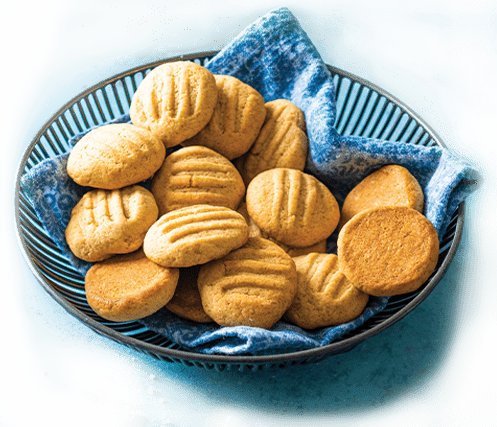Share

Think your pickled fish game is strong? It can always be better… Whether you’ve made it before, swear by a family recipe or giving it a try for the first time, we’ve got you covered from start to finish.

THE SPICE MIX
This is the first step to making great pickled fish! Blending your own spices is an extra step but it’s so worth it, plus you’ll have some left over for next time.
WHAT YOU’LL NEED
For the fish masala spice mix, gather the following:
- ¼ cup (60ml) coriander seeds
- 2 Tbsp (30ml) each cumin seeds, fennel seeds and black peppercorns
- 8 cloves
- Handful curry leaves (fresh or dried)
- 1 Tbsp (15ml) each ground ginger, cinnamon, turmeric and garlic powder
- 1 Tbsp (15ml) medium curry powder
- Pinch of salt
- Toast whole spices and curry leaves in a dry, hot pan for 1-2 minutes or until fragrant.
- Cool completely, then grind using a pestle and mortar until fine.
- Add ground spices, curry powder and salt, and mix well.
- Store in an airtight container.

Makes ¾ CUPS
LIQUID GOLD
The pickling sauce is like liquid gold. It packs so much flavour and brings families together. The secret is having the perfect balance of sweet, sour, salty and just the right amount of spice!
WHAT YOU’LL NEED
For the pickling sauce, gather the following:
- 5 cups (1.25L) water
- 4 cups (1L) white spirit vinegar
- 3-4 bay leaves
- 3 Tbsp (45ml) curry powder
- 1 Tbsp (15ml) homemade fish masala spice mix
- 2 Tbsp (30ml) turmeric
- 1 Tbsp (15ml) black peppercorns
- 1 Tbsp (15ml) coriander seeds
- 2 cups (500ml) brown sugar
- 1 jar (290g) apricot jam
- 2 Tbsp (30ml) cornflour
- 6-8 onions, sliced into rings
- Combine water, vinegar, bay leaves and all spices in a large pot and bring to the boil.
- Boil the mixture for about 8 minutes.
- Add brown sugar and apricot jam, and simmer on high for 10-12 minutes.
- Combine cornflour and ¼ cup (60ml) pickling liquid in a separate bowl until smooth.
- Whisk mixture back into pot and simmer for 5 minutes or until liquid has thickened slightly.
- Taste and adjust seasoning.
- Add onion rings and simmer for 5 minutes.
- Pour pickling sauce over just-cooked fish and cool completely before refrigerating.
ABOUT THAT FISH
A firm, white fish such as hake or kingklip is ideal for traditional pickled fish. It needs to be firm enough to withstand frying and being pickled for a few days. If using salmon, opt for a quick pickling liquid with simpler, lighter flavours.

BATTERED VS PAN-FRIED
Some prefer battered and deep-fried fish while others choose a simple pan-fry. Either way will be delicious.
Battered
- The basic batter consists of flour, milk and seasoning (either salt and pepper or spices).
- The batter provides protection while frying (so fish does not fall apart!), and gives the fish that crispy exterior we love.
MAKE THE BATTER
- Combine 2 cups (500ml) cake flour, 2 Tbsp (30ml) homemade fish masala spice mix and 2 cups (500ml) milk. Season.
- Heat oil in a large pot (about half-filled with oil) on high heat.
- Dip fish portions (about 2kg) into batter, making sure to coat evenly.
- Deep-fry in batches for 4-6 minutes and drain on kitchen paper.
- Makes enough for Traditional Pickled Fish (click here for full recipe)
Pan-fried
- The healthier and easier method – you need only a thin layer of oil in your pan.
- A light dusting of seasoned flour will create a crunchy coating on pan-fried fish.
HOW TO PAN-FRY
- Pat-dry fish portions (about 2kg) using kitchen paper. Season well and sprinkle with 2 Tbsp (30ml) homemade fish masala spice mix.
- Dip fish portions into 1 cup (250ml) cake flour to coat lightly. Shake off excess flour.
- Heat a glug of oil in a pan on medium-high heat.
- Fry fish in batches for 5-7 minutes or until cooked through, then drain on kitchen paper. Makes enough for Traditional Pickled Fish (click here for full recipe)
5 STEPS TO PERFECT PICKLED FISH

STEP 1
Mix and grind fish masala spice mix.

STEP 2
Season fish with salt, pepper and masala on both sides.

STEP 3
Make the batter and coat fish, making sure it’s thoroughly covered.

STEP 4
Deep-fry fish in batches in hot oil (180°C if using a thermometer) until golden-brown and crispy, about 4-6 minutes. Drain on paper towel.

STEP 5
Transfer fried fish to a deep baking tray or large bowl with a lid. Pour pickling sauce over fish and leave to cool completely, then cover and refrigerate. Pickle for at least 48 hours before serving, or store for up 3 weeks in the fridge.

3 WAYS WITH LEFTOVER PICKLED FISH
1. PICKLED FISH BUDDHA BOWL
Season 2 cups (300g) cooked couscous and toss through 3 Tbsp (45ml) chopped fresh coriander and juice (60ml) and grated peel of 1 lemon. Divide between 2 serving bowls. Divide 2 cups (460g) pickled fish, 1 punnet (62g) cooked and sliced mangetout, 1 cup (200g) roasted cauliflower and (200g) shredded small red cabbage between serving bowls. Drizzle with reserved pickled fish sauce. SERVES 2
2. QUICK PICKLED FISH PÂTÉ
Blitz together 2 cans (400g each) drained and rinsed cannellini beans, 1½ cups (400g) flaked pickled fish, ¼ cup (60ml) reserved pickled fish sauce, 2 chopped garlic cloves and a handful chopped fresh coriander. Season. Serve on toasted ciabatta or hot cross buns, sprinkled with chopped spring onion. SERVES 4-6
3. PICKLED FISH TART
Preheat oven to 180˚C. Roll out 1 roll (400g) puff pastry into a 3mm-thick rectangle and score a 5cm border all round using a sharp knife. Brush with 2 Tbsp (30ml) melted butter. Bake for 15 minutes or until golden. Top tart base with 2 cups (460g) pickled fish, ½ punnet (175g) halved mixed medley tomatoes and 4-5 sliced radishes. Season and garnish with chopped fresh coriander. Serve with lime or lemon wedges on the side. SERVES 4









